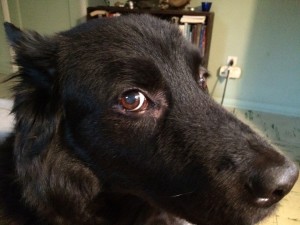Author Ron Vitale and I met online through the NanoWrimo Facebook group. While cheering each other on writing-wise, we realized that we share similar political views. With today’s political climate, the need to develop tolerance is stronger than ever. Ron offered to share this post about what happened to him after being mugged.
What happens to tolerance after you’re mugged?
“Give me your camcorder bag,” the black man had his hand in his jacket pocket and threatened me, “or I’ll shoot.”
A thousand things went through my head. Did he really have a gun? Could I run? Should I attack him? I just didn’t know what to do. I had never been mugged before.
Before I could do anything, he lunged forward, and grabbed the strap to my bag. I wrestled with him and the strap broke, he got the bag with the camcorder inside and ran off into the cold February night.
My heart raced and I didn’t know what to do. I watched him run off. He was shorter than me, black hair, and dark eyes with a dark jacket. I stood in a parking lot outside of the Philadelphia Museum of Art on a weeknight a little after eight o’clock and I had just gotten mugged. I took a deep breath and ran to my car, opened the trunk and pulled out an old army shovel that I carried there in case I ever got stuck in the snow. And then I did something stupid. I chased after the black man with the shovel and the first thing that came to mind is that I would chase after him, hit him with the shovel, and get my camcorder back. I hadn’t even finished paying off the damn thing yet.
I crossed the busy street in front of the museum and saw that he had disappeared into the unlit side filled with tall bushes. I’d not be able to see a thing there. Thankfully, my sanity came back to me and I stopped. I had only lost a camcorder. If I went any farther, I could be hurt or even killed. I lowered the shovel, turned around and went to the police. An officer was kind enough to take my statement, filed a report and then he opened a briefcase and pulled out stacks of photos. He asked me how tall I thought the black man was and he took the pile that was marked 5’9” and undid the rubber band, spreading a stack of several dozen photos in front of me. All were black men who were 5’9”. When asked if I recognized any of the men as the one who had mugged me, I shook my head. We even went through the pile of photos of black men who were 5’8” and I still couldn’t identify the thief.
Afterward, the officer drove me around in his police car and we looked at all the street corners in the area, but still I couldn’t find him. The officer told me that most likely the camcorder had been sold already for a few bucks for drugs and that I’d never see it again. I got to my car, drove home and my girlfriend at the time listened to my story and comforted me. Both she and my family were glad that I was safe and had not been hurt. I had been lucky.
The next day I went to work at my department store job just like normal. It was a slow night in late February. I sold cologne at the Men’s Fragrances counter. The money I earned helped pay my graduate school bills. I helped customers and had started to forget about the events of the night before until a black man came up and wanted to buy cologne from me. He was in his 20s, about 5’9” with dark hair. I’m ashamed to admit this, but on seeing him, I flinched and recoiled in fear. Logically I knew that he wasn’t the same black man who had mugged me, but I still felt afraid. I didn’t know what to do. I wanted to run, but I needed my job. I fought back my fear, and helped him get the cologne he needed. An hour later, a black family came to the counter and I helped them and my fear slowly began to subside.
I knew that not every black man was a mugger and out to get me, but I did have to fight to overcome that initial fear. I won’t deny that. We now live in a world in which we’re afraid of terrorists. I’m hearing the news about how “all refugees” need to be blocked from coming into America or how all illegal Mexicans will somehow magically be whisked away and brought back over the border and we’ll build a wall. A magical wall made out of adamantite that will solve all our problems.
But I don’t agree with that. You see, I remember being raised by my single mom. We were Italian and when I was young the firmly established people in our area called us “wops.” I had friends who were Irish and called “Micks” or I’d hear others say that all Irish were drunks. Yet none of that was true. My mom worked hard to raise my brother and I. Between her and my grandparents, we were given the best possible education that they could afford. I took to learning, studied hard and now, as a third generation Italian/Irishman, I’m a productive member of society. There was a time when my mom needed to be on welfare to feed and clothe us. Without help from my grandparents and through welfare, I would not be where I am today.
No matter if you’re Black, Syrian, Asian, Hispanic or any other race or nationality, not all people from that group are terrorists, rapists, thieves, cheats or what have you. People do good and bad things. When I look back at my life and see where I am now, I know that the sacrifices that my family made for me to have a good education made all the difference. If we cast out those different than us, would we not be spiting ourselves? The next great world renowned inventor, doctor, or artist may be Syrian, Black or Asian.
I have been held up at gunpoint and have decided not to hate. The older I get, the less I know and I realize that I want to learn more about different cultures, religions and races. I believe America is such a beautiful country because we have opened our doors to the world. Yes, there are terrorists out there. There have always been people who have wanted to harm others all the way back to the beginning of humankind. But in today’s world, we need now, more than ever, to be brave. Tolerance and empathy is so needed in our world today. I wish we could wave a magic wand and solve all the problems we have, but that’s not reality. Yet I firmly believe that to help solve the problems of tomorrow, we need to educate ourselves and those around us—the more we learn, are open to different ideas and cultures, the better off we will be. If Malala Yousafzai could be shot in the head as a teenager for trying to learn, but then heal and strive to fight worldwide for a woman’s right to go to school, why can’t we do one small thing? It’s a tiny thing, but I admit it’s frightening: Be open to try, trust and show empathy. Each day I try to do this more and more. Some days I fail, but other days I succeed. If I can do it after being mugged at gunpoint, so can you.
Ron Vitale was born and raised in Philadelphia, Pennsylvania. Influenced by the likes of Tolkien and Margaret Atwood, he began writing at an early age, creating short fiction from his Dungeons & Dragons role-playing sessions.
His writing has appeared in various places from elephant journal, SFWA’s The Bulletin and SEARCH magazine. When not writing articles, he also is the author of the Cinderella’s Secret Witch Diaries series geared toward new adults. Currently, he is keeping himself busy by writing his blog, and on learning how to be a good father to his kids all while working on his next novel. Read more at www.ronvitale.com/blog

